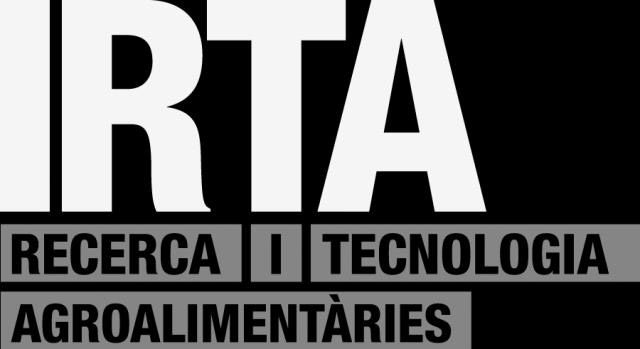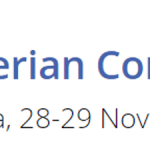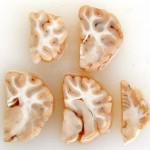IRTA and CIBERNED sign an agreement to investigate prion diseases
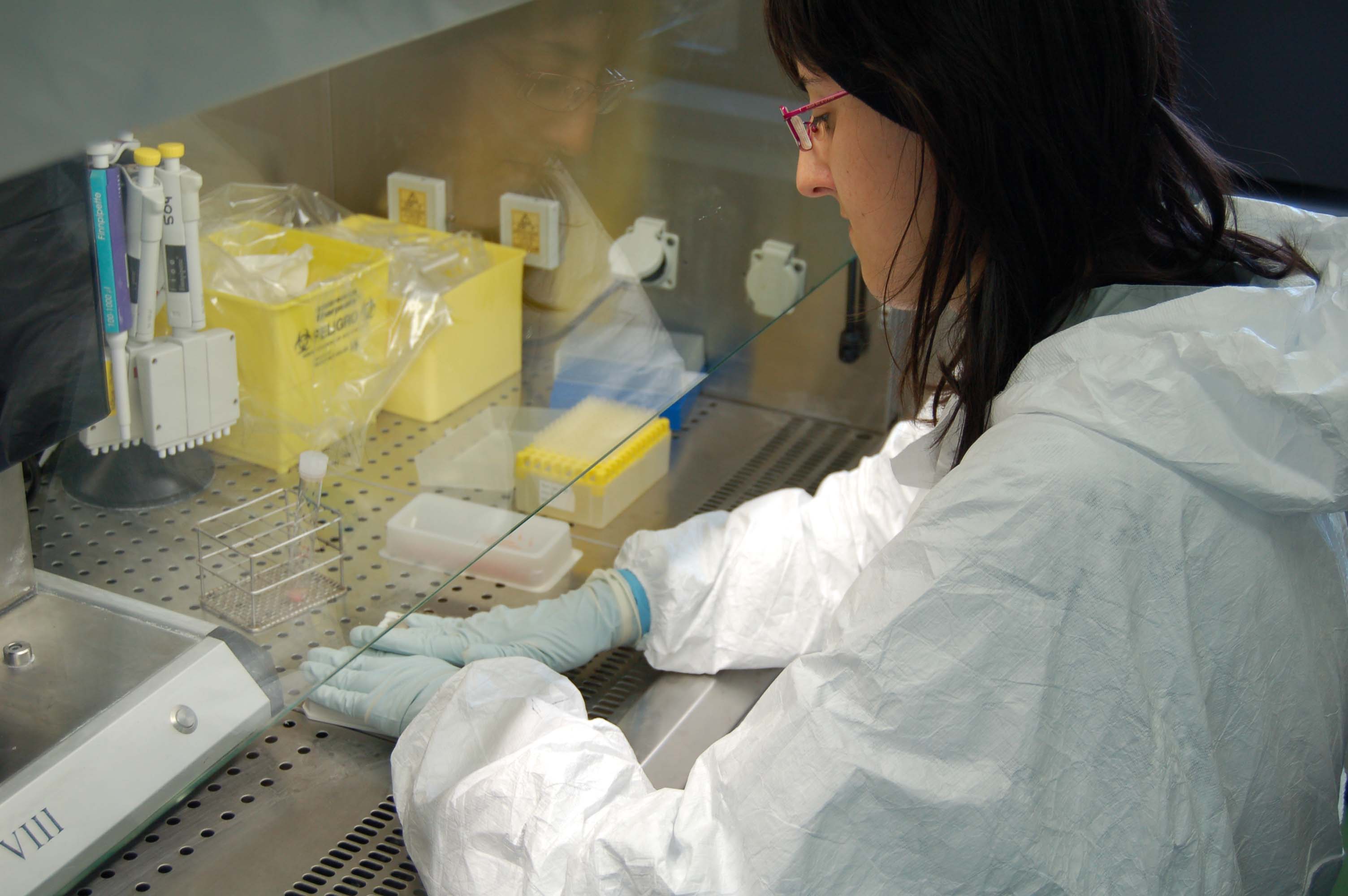
The Animal Health program of IRTA and the Neurodegenerative Diseases Network Research Center (CIBERNED) of the Carlos III Health Institute will work together to exchange knowledge and new techniques to study prion diseases. The use of the PRIOCAT laboratory located at the Animal Health Research Center IRTA-CReSA will be strengthened as a unique laboratory and a reference for the investigation of animal prion diseases in Catalonia.
The prion diseases or transmissible spongiform encephalopathies (TSEs) are a type of neurodegenerative diseases that affect both animals and people. The interest in studying these diseases has been growing due to its high impact on public health and the possible transmission to people through the consumption of foods contaminated with prions, as was the case with the “mad cow”. Experiments with these infectious agents, for which no treatment or vaccines are known, can only be carried out in facilities with a high level of biosafety, such as the PRIOCAT laboratory located in the IRTA-CReSA center.
Through this collaboration agreement, the research group of the Network Research Center for Neurodegenerative Diseases (CIBERNED), led by Dr. Isidre Ferrer, will use the facilities of the PRIOCAT laboratory to continue working on its line of prion diseases. The relationship between this group and the line of prion diseases of the Animal Health program of IRTA, developed by Dr. Enric Vidal in collaboration with Dr. Martí Pumarola of the Autonomous University of Barcelona, has been ongoing for years , as evidenced by their joint participation in various interregional projects dedicated to prion diseases such as RedPRION. With this new agreement, the exchange of knowledge, materials and new techniques to improve the study of these diseases will be promoted.
PRIOCAT is the only laboratory in Catalonia that works with animal prion diseases
Since 2001, the facilities of the Animal Health Research Center IRTA-CReSA have the PRIOCAT laboratory capable of working with these infectious agents with risk of transmission to humans. One of the main tasks of PRIOCAT is the diagnosis of prion diseases or transmissible spongiform encephalopathies (TSEs) in ruminants by order of the Department of Agriculture Livestock and Fisheries and the Department of Health of the Generalitat of Catalonia. In addition, it has a project of the Ministry of Economy, Industry and Competitiveness to study the relationship between scrapie, a fatal and degenerative disease that affects the nervous system of sheep and goats, with sporadic cases of Creutzfeldt Jackob disease in humans.
The PRIOCAT laboratory is located in the Level 3 Biocontainment Unit of the IRTA-CReSA center. These facilities constitute the Network of Laboratories of High Biological Security (RLASB), together with the facilities of the Animal Health Research Center INIA-CISA. It is a unique infrastructure in biosecurity, distributed in two nodes, which is part of the network of Singular Scientific and Technological Infrastructures of Spain (ICTS).
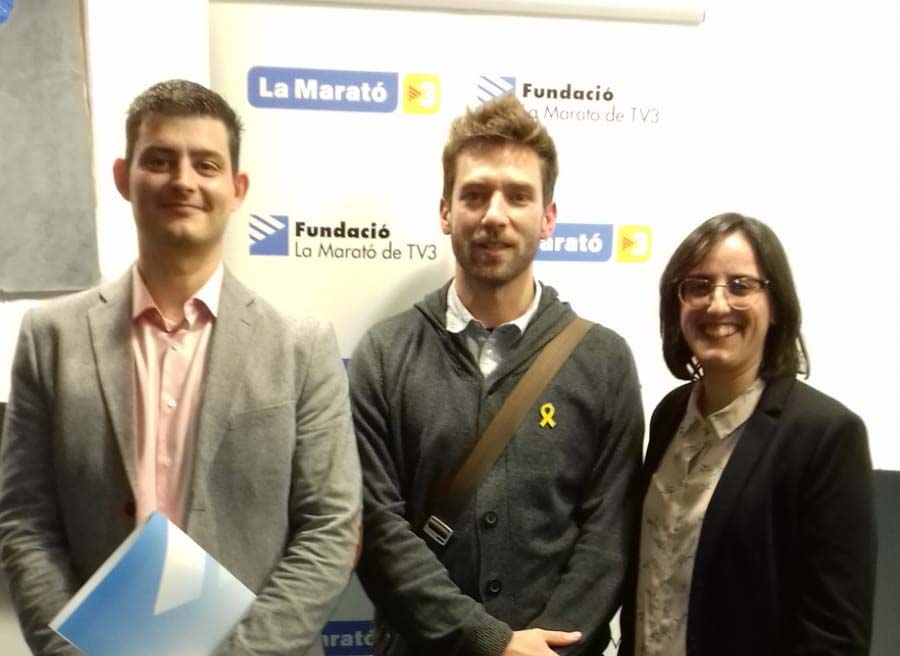
Franc Llorens CIBERNED-IDIBELL, Enric Vidal IRTA-CReSA and Sierra Espinar IRTA-CReSA.
The La Marató Foundation of TV3 finances one of the lines of study of prions
The agreement between IRTA and CIBERNED has already taken its first steps. In the 2017 edition of the TV3 Marathon Foundation dedicated to infectious diseases, a project worth € 400,000 was awarded to assess the risk of atypical and emerging prions for public health, which will be launched this year 2019 The project will focus on conducting bioassays in transgenic mouse models and studying biomarkers in biological fluids, blood and cerebrospinal fluid. These experiments will serve to study prion diseases such as atypical scrapie or chronic caquectizant disease in cervids (deer, deer and roe deer). This project funded by the La Marató Foundation of TV3 is coordinated by Franc Llorens, researcher of the CIBERNED group – coordinated by Isidro Ferrer – and researcher attached to the Biomedical Research Institute of Bellvitge (IDIBELL), the researcher Enric Vidal of the Animal Health program of IRTA and Juan Carlos Espinosa, researcher of the Animal Health Research Center (CISA-INIA).

